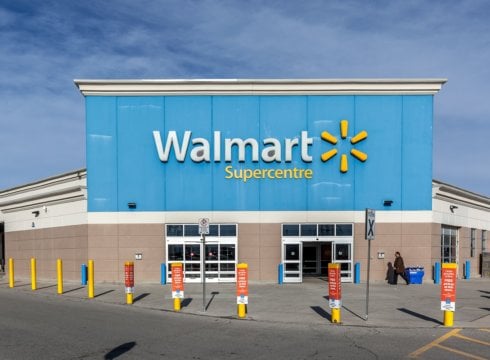SUMMARY
Walmart plans to use the expertise of Flipkart in technology and analytics
In turn, it plans to help Flipkart with grocery retailing
Walmart India’s private brands — Right Buy and Member’s Mark — account for roughly 6-7% of its overall sale
Inc42 Daily Brief
Stay Ahead With Daily News & Analysis on India’s Tech & Startup Economy
In a bid to strengthen its presence in India after acquiring Indian ecommerce unicorn Flipkart, global retailer Walmart is now reportedly looking to leverage the Flipkart platform to cross-sell private brands. At the same time, it’s looking for ways to channelise its expertise in technology and analytics to help Flipkart with grocery retailing.
In a media statement, Krish Iyer, chief executive of Walmart India, said “Currently, we are selling our private brands only in our stores but don’t see any reason why we can’t sell it outside our stores. With Flipkart, there is an option. Flipkart is a platform and there are sellers on it, and when you talk about groceries, it’s about getting the right sellers to complete the mix. They are very good at technology, analytics and customer relationship management.”
Notably, for Walmart India, its private brands — Right Buy and Member’s Mark — account for roughly 6-7% of its overall sales, while in the US, nearly a third of its revenues come from its private labels.
In India, only 51% FDI is allowed in multi-brand retail, while 100% FDI is allowed in cash-and-carry wholesale ventures that sell groceries and other products to business entities such as neighbourhood stores.
So, even though the regulations limit Walmart from selling its own brands directly to end consumers and from listing them directly on Flipkart’s platform, the company’s private labels are already being sold at kirana stores, with merchants buying products from Walmart’s best price wholesale stores.
Flipkart, which was a major player in the Indian ecommerce industry even before the Walmart acquisition, already boasts a host of private labels across categories such as electronics, appliances, and accessories under the ‘Billion’ brand name. Its fashion subsidiary Myntra has a portfolio of private brands such as Roadster, Dressberry, and Anouk, among others.
Ahead of its annual festive season sale in October, Flipkart is expanding its in-house brands/private labels with a view to increasing business during its flagship Big Billion Days (BBD) sale.
It plans to add several products to its in-house brands MarQ, an appliances brand, Smart Homes, a furniture brand, and Umbrella, which is a small electronics and accessories brand. Flipkart expects its in-house brands to drive potential growth for the company.
Notably, Flipkart’s in-house products now account for about 15% of all sales in their respective product lines even though the MarQ brand products are priced 20-30% lower than other branded products in the category.
Walmart clarified that both companies have separate teams and that the benefits will not accrue immediately. “Nothing is going to happen in the next two-three months. It takes time and needs a lot of planning and good execution to get the benefits in the short-to-medium term,” said Iyer.
Private Labels: High-End Yet Good For Growth
Private labels have been gaining popularity among deep-pocketed ecommerce companies as they help establish in-house brands and expand client bases.
Recently, reports surfaced that Amazon India is planning to launch its own private label of beauty and personal care products. Earlier, in February, reports also surfaced that Amazon was gearing up to launch a number of in-house brands across multiple categories in 2018.
The online grocery sector too has been seeing a spurt in private labels. Market leader BigBasket owns private labels such as Fresho for vegetables and idli-dosa batter; Royal and Popular for staples; Tasties for snacks etc. According to a report by Kalagato, as of March 2017, BigBasket held about 35% market share in the online grocery segment, closely followed by Grofers at 31.5%, and Amazon at 31.2%.
Fresh products are a game-changing formula in the online grocery delivery segment, and even established players such as Amazon, Paytm, and Flipkart have been trying to introduce such products on their hyperlocal delivery platforms.
In the online grocery report by consulting firm Praxis Global Alliance, it was suggested that fresh food has the lowest margins in this sector at 7%. But it can go as high as 30% if sourced directly from farmers and sold under the company’s private label.
As the new parent-subsidiary combination, Walmart-Flipkart, gears up to challenge Amazon, we can expects some sparkling sales during the upcoming festive season.
[The development was reported by ET.]
Note: We at Inc42 take our ethics very seriously. More information about it can be found here.


